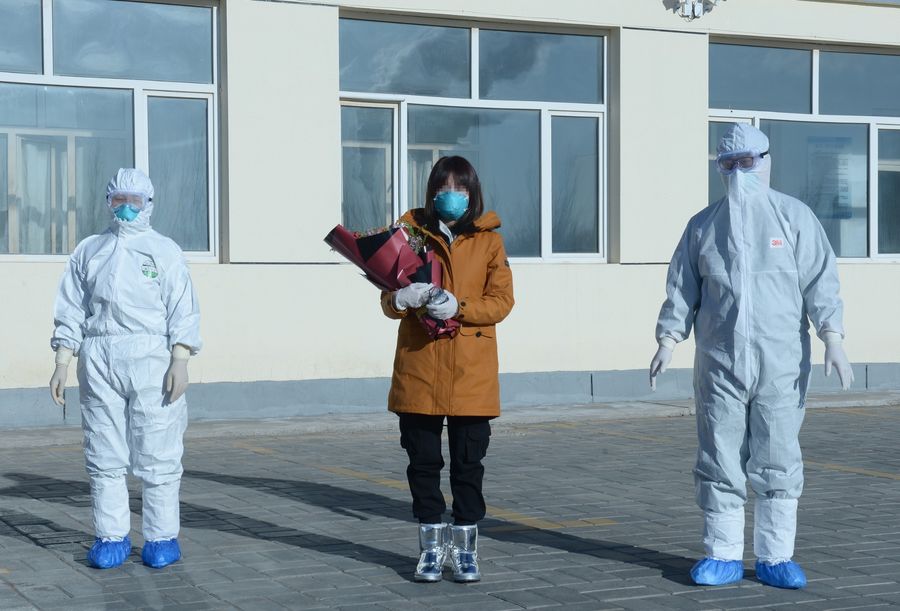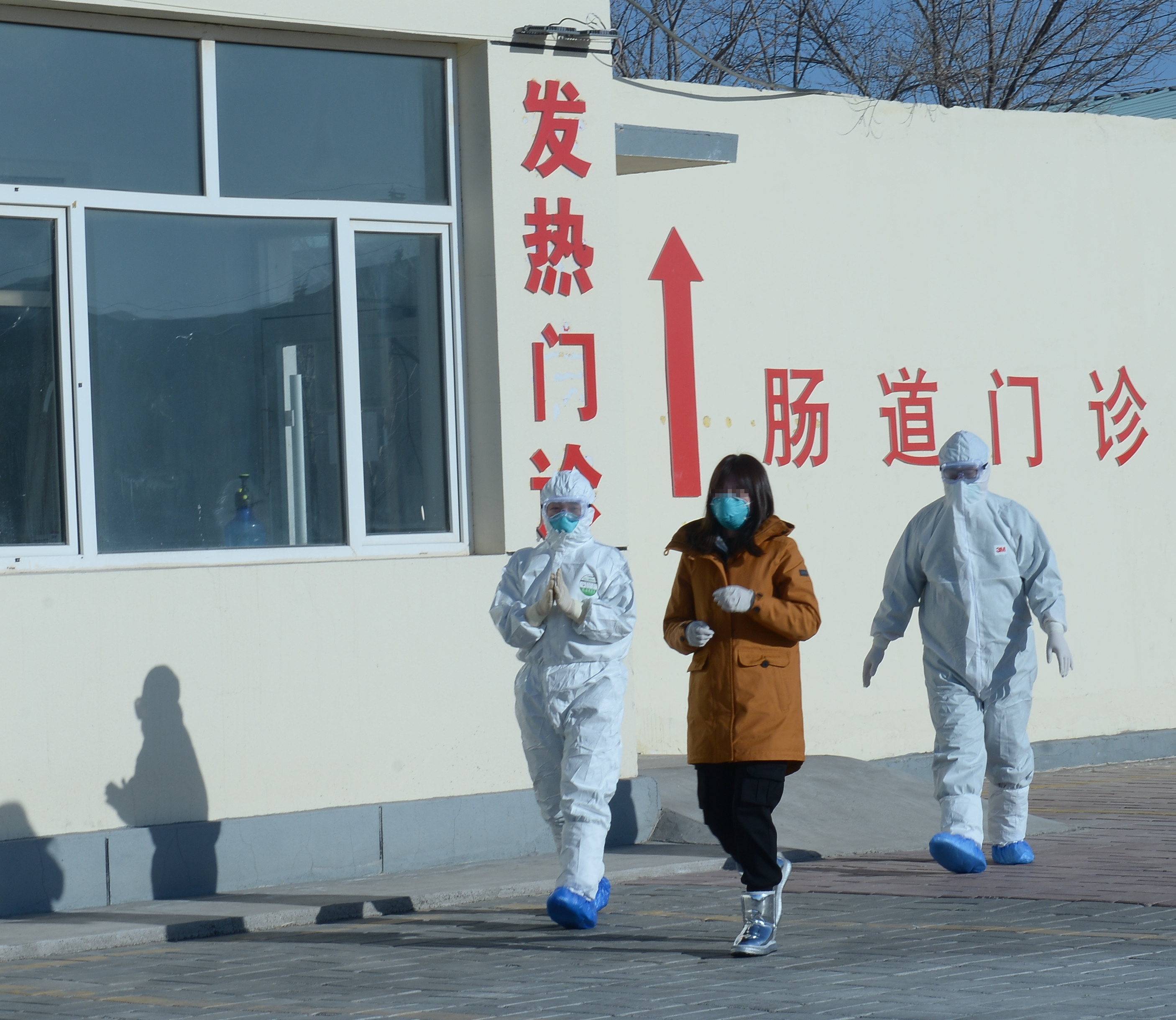
Recovered Ge Lei and her doctors at Erenhot People's Hospital, Erenhot, north China's Inner Mongolia Autonomous Region, Feb. 6, 2020. (Photo provided by Ge Lei to Xinhua)
"I am grateful as so many doctors and nurses have sacrificed a lot while treating me, and I'd like to extend the love I have received to others," she said.
HOHHOT, Feb. 11 (Xinhua) -- Despite wearing a mask, Ge Lei (pseudonym) took several deep breaths upon stepping out of the hospital. She had longed for the taste of fresh air, free from the smell of disinfectant.
A white-collar worker from Wuhan, capital of central China's Hubei Province, Ge, 26, was excited about her Lunar New Year tour to Russia over half a month ago, imagining an ice dive at Lake Baikal and the northern lights in Murmansk.
However, her trip was cut short at the border city of Erenhot in Inner Mongolia Autonomous Region because she was diagnosed with the novel coronavirus pneumonia (NCP).
After two weeks of quarantined treatment in hospital, she was cured and discharged on Feb. 6.
"I will never forget those 14 days," she said.
According to China's National Health Commission, the overall confirmed cases of novel coronavirus infection on the Chinese mainland had reached 42,638 by the end of Monday, and a total of 3,996 people had been discharged from hospital after recovery.
Onboard the K3 train from Beijing to Moscow, Ge arrived at Erenhot station in the early morning of Jan. 23. While receiving a regular check at the customs, she and five other passengers were stopped.
"My passport showed I was from Wuhan, the epicenter of the virus outbreak, so I was told a further check was required," she recalled, adding that she did not realize she had then caught a fever of 37.3 degrees Celsius.
When they were taken to Erenhot People's Hospital, medical staff in protective suits were waiting at the gate.
"I'd never seen such a scene before, straining my every nerve." After a series of examinations including a blood test and computed tomography, Ge was suspected to have contracted NCP.
Later on the same day, China locked down the entire city of Wuhan, an unprecedented move to curb the NCP spread, as the confirmed cases across the country had surpassed 500 by then.
Ge tested positive one day later, on the eve of the Lunar New Year.
On hearing the result, she burst out crying in the hospital, her body trembling.
"I had no family around me. I thought I would die," she recalled. After the medical staff calmed her down, Ge was finally able to call her mother about her infection.
Her extreme anxiety and deep sorrow deteriorated her condition.

Recovered Ge Lei walks out of her isolation ward accompanied by her doctors at Erenhot People's Hospital, Erenhot, north China's Inner Mongolia Autonomous Region, Feb. 6, 2020. (Photo provided by Ge Lei to Xinhua)
Liu Haisheng, director of the infectious disease department of the hospital, said Ge's pneumonia worsened, and two days later, she was classified as "in severe condition."
To encourage her, the medical staff kept talking to her via video call and even sang for her. "In their songs, I could imagine the vast grassland and the blue sky," she said.
Ge was provided with nutritious food including fruits, milk and milk tofu, a local specialty and one of her personal favorites.
She said the most impressive meal was the dumplings on the eve of the Lunar New Year.
"On top of the dumpling box, I saw a card saying 'Happy New Year. Be strong!' For the first time in my life, I was warmed by strangers just like family," she said.
Whenever the medical staff checked on her, Ge rarely talked. "I didn't want to utter a word for fear of contaminating them -- the 'white angels,'" she said.
On the evening of Jan. 27, doctors delivered a box of anti-virus drugs.
"I heard the medicine had just arrived, and while touching the box, I could still feel the outside temperature."
According to the hospital, the medicine, Kaletra, was prescribed on Jan. 25 following a group consultation of senior doctors and was immediately transferred from the regional capital Hohhot.
The drug, in combination with some traditional Chinese medicine, worked well on Ge. Her symptoms were gone on Feb. 1, so she received a coronavirus test again.
"Everybody in the department stayed with me while waiting for the result that night. At 10:30 p.m., I was told the result was negative. I burst into tears again," she recalled.
Ge was discharged on Feb. 6 after a second test confirmed the negative result. The six people who were in close contact with her were also released after a 14-day quarantine.
Now Ge is receiving medical observation in Erenhot. She plans to volunteer in fighting against the epidemic after returning to Wuhan.
"I am grateful as so many doctors and nurses have sacrificed a lot while treating me, and I'd like to extend the love I have received to others," she said. ■



